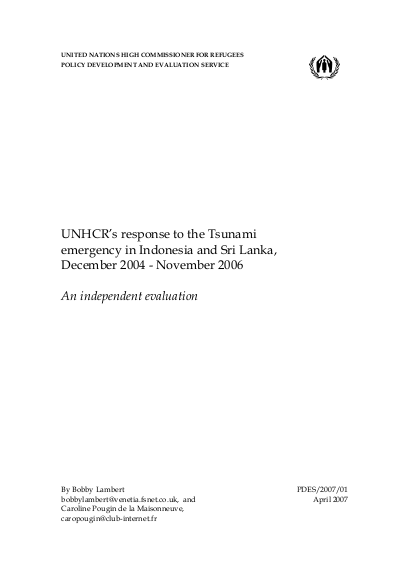An independent evaluation

Work on this independent evaluation began on 22 November 2006, with fieldwork taking place from 25 November to 13 December. Its main purpose was “to gain lessons learned for future operations concerning natural disasters.” Since the Tsunami operation, UNHCR has committed itself to the Cluster Approach within the UN by taking the lead in three clusters, Camp Management, Protection and Emergency Shelter. A particular concern was to examine implications of the cluster approach to IDP emergencies. The Indian Ocean Tsunami of 26 December 2004 resulted in the loss of 228,000 people with some one million being made homeless in Indonesia and Sri Lanka. In the days that followed, UNHCR decided to become involved in a significant way in the humanitarian response. It took on a major role in the provision of shelter, complemented in Sri Lanka by activities in protection and logistics support. In taking this decision, considerations included firstly, the immediate moral imperative of helping relieve suffering in one of the world’s largest ever disasters, secondly, the longer-term protection imperative of maintaining positive relations with countries where UNHCR needed to carry out its traditional mandate and thirdly the strategic organizational imperative, at a time of UN reform, of indicating a practical organizational capability which would be valued whatever the eventual outcome of such reform.